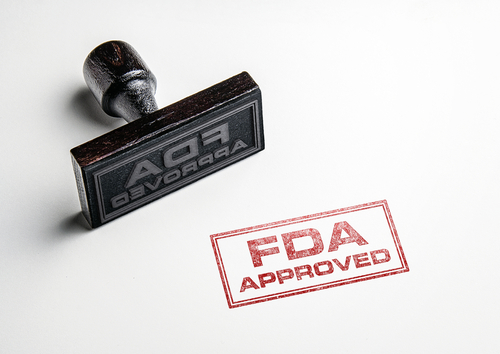Nerlynx (neratinib) is now approved in the U.S. for use, in combination with capecitabine, to treat HER2-positive breast cancer patients who have received two or more HER2-targeted therapies for their metastatic disease, Nerlynx maker Puma Biotechnology said.
Recommended doses are 240 mg of Nerlynx (six tablets) once daily plus capecitabine (750 mg/m2 given orally twice daily) for the first two weeks of each three-week cycle, until disease progression or unacceptable toxicity.
Puma’s request to extend Nerlynx’s label was accepted by the U.S. Food and Drug Administration (FDA) on the basis of positive results of the NALA Phase 3 trial (NCT01808573). That trial found that the combination prolonged the lives of patients without disease worsening, as compared with Novartis‘ Tykerb (lapatinib), another therapy for HER2-positive breast cancer.
“Although there have been many new treatment options for patients with HER2-positive breast cancer, patients still need additional treatment options once they progress,” Alan H. Auerbach, Puma’s CEO and president, said in a press release.
“Based on the results of our NALA data, we believe Nerlynx could be a promising therapeutic opportunity for these patients,” Auerbach said.
NALA is a randomized, controlled Phase 3 trial evaluating the safety and efficacy of Nerlynx plus capecitabine (brand name Xeloda, generics also available) compared with Tykerb plus capecitabine as third-line therapy for women with HER2-positive metastatic breast cancer.
The study, which involved 621 patients worldwide, found that treatment with Nerlynx prolonged the time patients lived without cancer progression to 8.8 months, compared with 6.6 months for treatment with Tykerb.
Nerlynx also tended to prolong overall survival, although this improvement was not statistically significant — 24.0 months, vs. 22.2 months with Tykerb, at four years of study.
Patients taking Nerlynx had a total frequency of 22.8% of brain metastasis interventions at 4.5 years, compared with 29.2% for those receiving Tykerb. This is consistent with prior Phase 2 findings showing that Nerlynx plus capecitabine shrank brain metastasis in nearly half of HER2-positive breast cancer with metastatic brain tumors.
The median duration of response was longer with Nerlynx, at 8.5 months, compared with 5.6 months for Tykerb.
The overall safety profiles were comparable between the two therapies. However, fewer participants quit therapy due to treatment-related side effects with Nerlynx (10.9%) than with Tykerb (14.5%).
Severe diarrhea was more frequent among Nerlynx-treated patients (24.4% vs. 12.5%), though this did not lead to more study dropouts than Tykerb. This side effect has been seen in multiple trials of Nerlynx, leading its U.S. label to be modified to include information on the use of two anti-diarrheal medications to prevent severe side effects.
Nerlynx was first approved by the FDA in July 2017 as an adjuvant treatment for adult patients with early-stage HER2-positive breast cancer, following add-on therapy with trastuzumab (brand names including Herceptin). In September 2018, it was approved by the European Commission.
Nerlynx is a targeted therapy for HER2-positive breast cancer. Its active substance neratinib, also known as PB272, is a small molecule that works as a tyrosine kinase inhibitor, blocking the passage of signals through the human epidermal growth factor receptor 2 (HER2).

